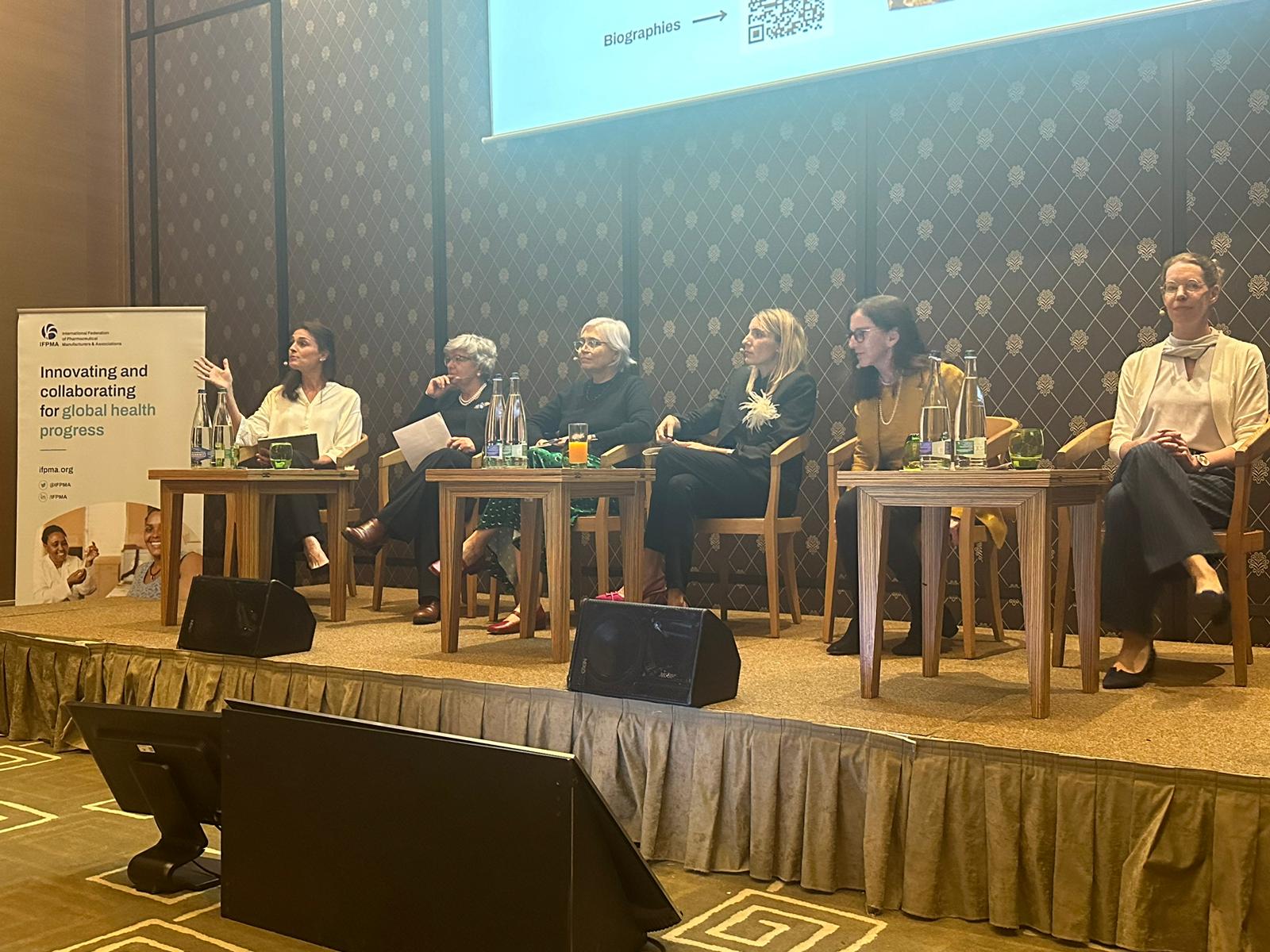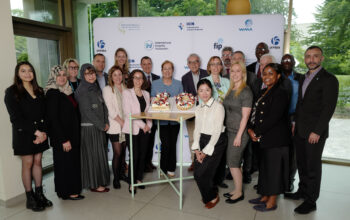Adult immunization: Powerful new evidence for a prevention-first mindset
Author
Share

Unlocking healthier, longer lives through adult immunization
Adult immunization is crucial for longer, healthier, and more productive lives. It offers excellent returns on investment by offsetting costs through significant benefits to individuals, healthcare systems, and society.
A new report by the Office of Health Economics (OHE), commissioned by IFPMA, highlights these benefits and was discussed at an event during the 77th World Health Assembly (WHA) in Geneva. Health experts and policymakers emphasized the value of a life-course approach to immunization and a prevention-first mindset, benefiting population health, healthcare systems, and economic productivity.
Adult vaccination: A 19-fold return on investment
At the event, Professor Lotte Steuten, Deputy Chief Executive at OHE, highlighted the socio-economic value of adult immunization programs. This comprehensive analysis examined the benefits of immunizing against influenza, pneumococcal disease, herpes zoster, and RSV across 10 countries. The results demonstrated overwhelmingly positive returns on investment, showcasing not only direct health benefits but also significant advantages for health systems and the broader economy. According to Lotte, “For each euro invested in adult immunization, there are up to 19 euros in benefits for patients, the healthcare system, and society at large.”
“For each euro invested in adult immunization, there are up to 19 euros in benefits for patients, the healthcare system, and society at large.”
Preventing catastrophic consequences for adults
Dr Stefania Maggi, President, European Interdisciplinary Council on Aging (EICA), emphasized the severe consequences of vaccine-preventable diseases in adults. Influenza and RSV can lead to hospitalization, serious complications, exacerbation of co-morbidities, loss of autonomy, or even death, while herpes zoster can cause significant pain and reduce quality of life. Dr. Maggi called for a paradigm shift from treatment to prevention as part of a holistic health approach, urgently needed to mitigate these risks.
A shift towards prevention
Dr Jane Barratt, Global Advisor at the International Federation of Ageing (IFA), highlighted broader societal and environmental trends that necessitate a shift towards prevention. With rising pressures on health systems due to aging populations, globalization, and climate change, the need for vaccination and other preventive measures is more critical than ever. Dr Barratt pointed out the paradox that, while older adults are often seen as a burden on healthcare systems, these systems do not always facilitate easy access to vaccinations. She stressed the importance of sustained investment in comprehensive immunization schedules across the life course.
Adopting a life-course approach to vaccination that leaves no one behind
Governments and international organizations are increasingly stressing the importance of a life-course approach to vaccination. Ms Tania Cernuschi, Unit Head for Immunization Agenda, Policy, and Strategy at the WHO, discussed the WHO’s Immunization Agenda 2030 (IA2030), which envisions global access to vaccination services for all ages. IA2030 promotes leveraging healthcare touchpoints throughout life to provide vaccination opportunities, integrating immunization into primary healthcare systems. This approach aims to tackle multiple serious diseases, including tuberculosis, yellow fever, meningitis, and influenza.
Dr Agnes Suares de Silva, Director at the Health and Environmental Surveillance Secretariat at the Brazilian Ministry of Health, provided insights into Brazil’s immunization efforts. Brazil’s healthcare system strives for equity, and leaving no one behind, initially focusing on the most vulnerable populations and expanding to the general population. Awareness campaigns in Brazil have created positive narratives around immunization, underscoring historic successes like eradicating polio and the recent need to contain COVID-19.
Engaging policymakers for a prevention-first future
Ms Christi Kelsey, Senior Vice President, Head Global Vaccines Commercial at GSK, contended that the OHE report offers valuable evidence and “a common language to disrupt a status quo.” Sharing this knowledge with ministers of health and finance is crucial, because “knowledge shared is knowledge multiplied.”
Ms Kelsey highlighted that the infrastructure already created for childhood vaccination shows that the same can be done for life-course immunization. She encouraged everyone to take up the evidence in the report and be empowered to have much-needed conversations to protect everyone from vaccine-preventable diseases.
The evidence for adult immunization is substantial and growing, and its value made clear. Policymakers need to be made aware of the health and socio-economic benefits. It’s time to adopt a prevention-first mindset and ensure immunization becomes a normal part of everyday life.
For more information, you can download the event write-up here.

Author






